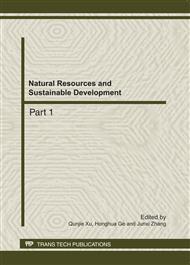p.1960
p.1965
p.1970
p.1977
p.1982
p.1987
p.2003
p.2008
p.2012
Study on the Container Transport Chain Security under the Condition of Customs Non-Traditional Security
Abstract:
Confronted with the unstable global environment and the threat of transitional terrorism, besides from the traditional function of supervising the economy frontier, the non-tradition functions Customs has become more and more important. In the supervision of foreign trade, Customs not only ensure the enforcement of legislations, but protect the country from terrorism attack. However, the tremendous amount of containers and the request of trade facilitation have always challenged the sufficiency of Customs supervision. Customs must adopt risk management into its work. This paper studies the risk assessment of container security using FTA and FMECA in order to quantitative the risk in the container cargo shipping process and help Customs regulate efficiently.
Info:
Periodical:
Pages:
1987-2002
Citation:
Online since:
October 2011
Authors:
Price:
Сopyright:
© 2012 Trans Tech Publications Ltd. All Rights Reserved
Share:
Citation:


